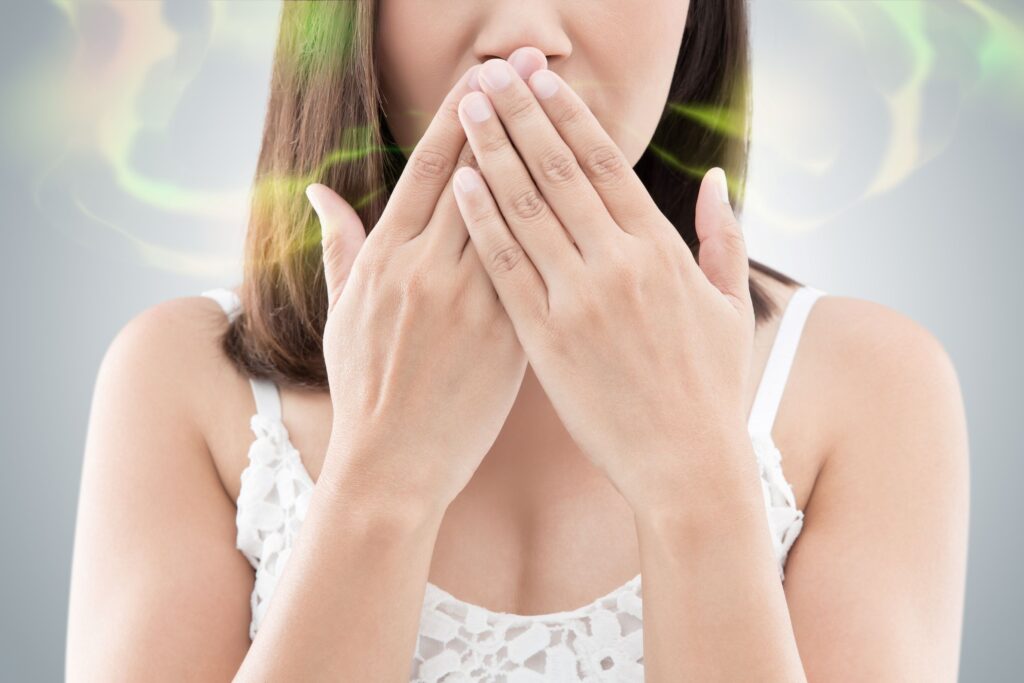
Dentures are the tried-and-true solution for restoring your smile’s appearance and functionality after tooth loss. Whether you need a full or partial set, your dentist can customize your new teeth to look and feel as lifelike as possible so you look and feel like the best version of yourself.
However, if your prosthetics have begun to smell unpleasant, you might avoid wearing them. Continue reading to learn what might be behind the foul scent and what you can do about it!
Tip #1: Take a Break
Many patients forget to remove their dentures at night or believe it’s easier and more effective to wear them 24/7. Although it might be safe to doze off with them in your mouth every now and then, it’s typically recommended that you remove them at night to sleep.
This is partly because your restoration forms a tight suction against your gums over the bony ridges in your mouth to remain in place. This reduces circulation to your connective tissues, rendering your body unable to deliver essential nutrients to support them. Unfortunately, this increases the risk of developing gum disease or forming plaque on your dentures that can start to smell.
Removing them at night gives your mouth a well-earned reprieve to rest and regenerate to prevent potential oral issues.
Tip #2: Clean Them Consistently
Dentures usually consist of a gum-colored base made from acrylic, which contains the correct number of pontics (artificial teeth) often made from resilient ceramic or resin. These materials don’t develop decay like natural teeth, so many patients assume there’s no need to continue keeping up with their daily dental hygiene routine.
But nothing could be further from the truth. Leftover food and harmful germs can become trapped in the space between your prosthetics and your gums, allowing them to thrive and produce the volatile sulfur compounds (VSCs) associated with halitosis.
You should remove your prosthetics twice daily to gently scrub them with a soft-bristled toothbrush and mild dish soap that won’t abrade the materials. This removes harmful microbes that cause dental problems and undesirable smells.
Tip #3: Avoid Dry Mouth
Did you know saliva is your mouth’s first defense against dental concerns? It has a nearly neutral pH balance to counter acid damage to enamel and regularly rinses away germs and debris. Unfortunately, many patients requiring dentures in their later years also suffer from dry mouth, as your body’s saliva production naturally decreases with age.
However, it can also be caused by genetics, drinking too much caffeine or alcohol, or taking certain prescription medications. Keeping your mouth moist keeps harmful bacteria populations under control, so you may want to try drinking more water to stay hydrated. You can also discuss alternative medication options with your primary care physician to avoid it as a side effect.
If you’re still unsure of why your dentures smell less than ideal, your dentist can professionally clean them and discuss continuing maintenance measures with you to keep them in great shape!
About the Practice
At River Station Family Dentistry, patients of all ages benefit from two dentists dedicated to helping them build happy, healthy smiles meant to last. Dr. Andrew Hale and Dr. Sally Bishko collaborate to provide a comprehensive menu of services to meet all your family’s needs at one convenient location, including lifelike dentures to replace missing teeth. Their caring approach combines with state-of-the-art technology to enhance your comfort and increase the accuracy of treatment results. You can request an appointment on the website or call (802) 223-2244.
